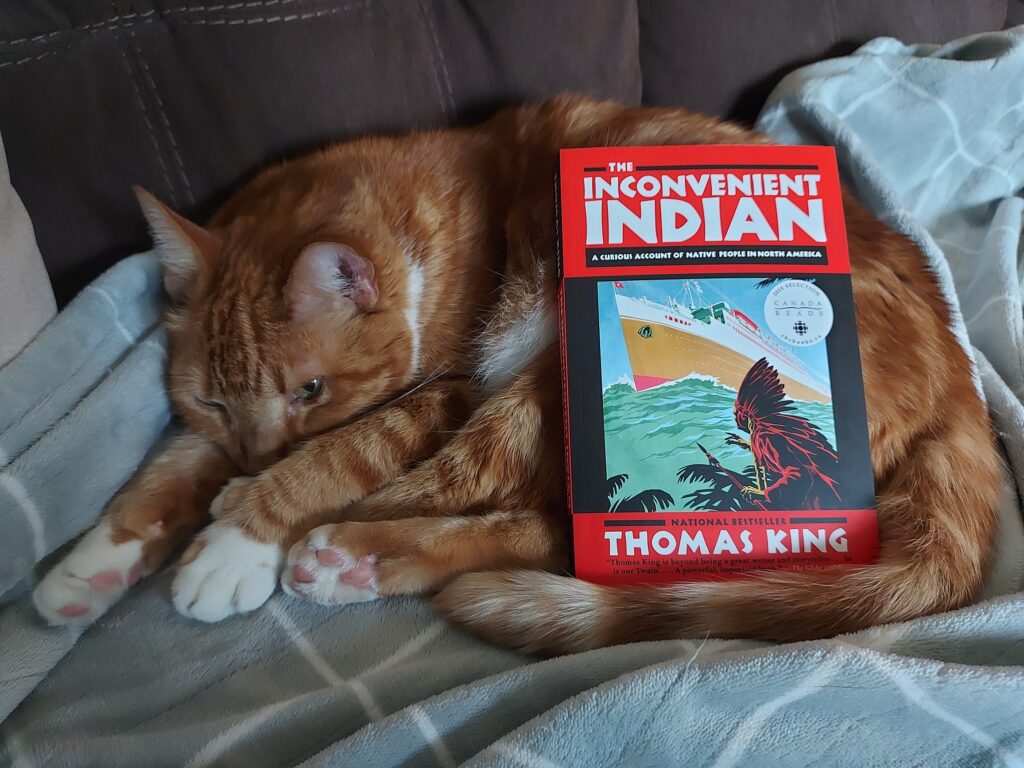The Inconvenient Indian: A Curious Account of Native People in North America by Thomas King

The Inconvenient Indian is a great book if you are looking for an introduction to the history of the relationship between Indigenous people and white people in Canada and the US. For someone like me who has already read many different books about Indigenous people, The Inconvenient Indian is just a broad level look at this relationship and does not really examine how it affects Indigenous people on an individual level.
The Inconvenient Indian poses the question of what white people can do about the “Indian problem”. This is a terrible way of framing things, but it is true if you are looking at it from the perspective of a racist white person. There is a really simple solution to the “Indian problem”, though: white people can stop being racist twats and let Indigenous communities have their own sovereignty. Oh, never mind, it is not so simple after all.
King uses humour (because, you know, humour is a coping mechanism) to examine the history of Indigenous people who populate Canada and the US and suddenly found their lives upended by the conquest of white Europeans. For King, the issue is land. Indigenous people had a lot of it, and white people wanted it, and white people will not stop until they have taken all land away from Indigenous control. He examines the long trail of broken treaties that has resulted in Indigenous people being hustled into smaller and smaller parcels of land far from their ancestral homes. Even today, Indigenous people do not have much control over the land that was returned to them because whites keep finding ways to steal it back. It is awful to read about, if you are not racist and have morals, and King’s frustration and disgust does come through at times, not that you can blame him.
If you have any curiosity at all about Indigenous people in North America, then you should definitely take the time to read this book. You might learn to appreciate history from the perspective of the oppressed rather than the oppressor.